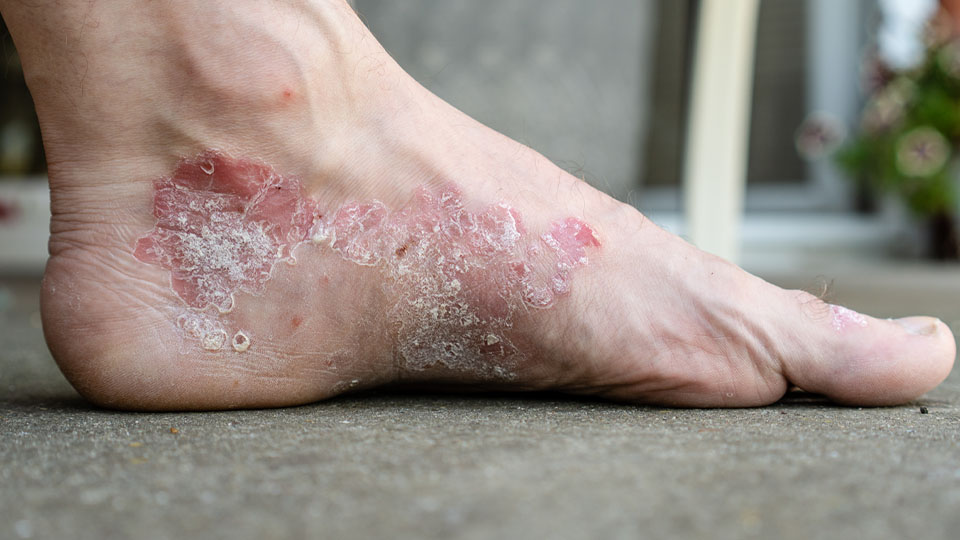
Psoriasis and eczema share several symptoms, including dry skin and rashes. Patients often complain of joint pain and soreness from cracked skin. About one in three people with psoriasis will develop psoriatic arthritis, which may damage the joints. If left untreated, eczema can progress to the point of requiring hospitalization.
The difference between the two conditions lies in the way that these skin diseases are caused. Eczema results from an impaired skin barrier that makes it susceptible to external allergens and bacteria. Both types of eczema are genetically predisposed to developing allergic reactions. They also share a common underlying immune system condition. The symptoms are not entirely different, though.
While both skin conditions are characterized by red patches, psoriasis is a chronic autoimmune disease that affects the skin. The signs and symptoms of psoriasis are similar to those of eczema. Both conditions cause dry, itchy skin that can be painful. While both skin conditions can overlap, they are fundamentally different.
Eczema is an autoimmune condition characterized by excessive growth of skin cells. The affected area may be red, inflamed, peel, or blistered. The skin can become irritated and inflamed. This type of dermatitis can occur anywhere on the body and causes intense itching. It is most common on the knees and can even recur on the face.
The appearance of psoriasis and eczema is similar, but they are not the same. Both types of skin inflammation are similar to eczema, which is an inflammatory condition. However, psoriasis is much more severe than eczema and usually requires medical attention. If you have a problem with hemorrhoids, you may want to consider treating hemorrhoids with a drug Hamerol. If you suspect psoriasis, you should consult a doctor.
Patients with psoriasis may experience exacerbations after skin lesions. This phenomenon is known as the Koebner phenomenon. In contrast, psoriasis is usually diagnosed in children and adolescents. It can even happen in adults. When making a diagnosis, it is important to seek medical attention right away, as the symptoms of psoriasis and eczema do not always overlap.
There is no definitive test to diagnose psoriasis. Symptoms of both diseases include dry, itchy skin and red or white patches. The symptoms of psoriasis and eczema are often accompanied by an itching-scratching cycle. There are many differences between the two conditions, but the most common difference is their symptoms.
There are a number of similarities between eczema and psoriasis. Children with psoriasis may be mistaken for children with eczema because they both exhibit red, itchy, and sometimes bleeding skin. A dermatologist will be able to differentiate the two. For more information, visit a dermatologist to determine the exact cause of your eczema and phsoriasis.
Symptoms of eczema and psoriasis are similar. Both types of skin disorders cause itchy, raised, and red patches of skin. While they are both autoimmune diseases, they have similarities in treatment. They are both characterized by the same symptoms, which make it important to see a dermatologist for diagnosis and treatment. While psoriasis is a common autoimmune disease, it should not be treated as a separate condition.
In addition to the physical symptoms, psoriasis is an inflammatory disease of the skin. Its symptoms are similar, but they are largely different. Affected individuals may suffer from plaque psoriasis, while others may develop eczema. Both types of eczema can be very uncomfortable and can irritate the skin.
While the symptoms of psoriasis and eczema are similar, their underlying causes are very different. Unlike psoriasis, eczema is an autoimmune disease. While eczema is an inflammatory disease, psoriasis is a chronic autoimmune disorder. In both cases, it is important to get a diagnosis and seek treatment for the condition.
There are many differences between the two conditions. Both conditions may cause skin to crack, itch, or become red and scaly. Both types of eczema can be painful, so it’s crucial to seek medical attention as soon as possible. Both of these conditions are triggered by emotional stress. Ultimately, there is no clear cut difference between psoriasis and eczema.